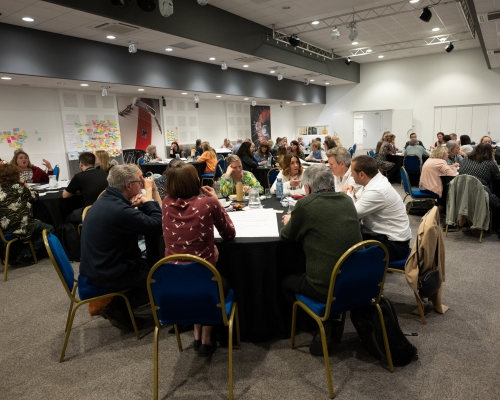Navigating the world of trust and foundation fundraising can feel like traversing a minefield. Even small missteps can derail your application.
In this blog post, our Funding and Enterprise Consultant, Miranda, shares five of the most common pitfalls that trip up organisations seeking funding. Avoid these simple errors, and you’ll dramatically improve your chances of success.
1. Non-compliance with guidelines
Funders have specific guidelines for a reason. Ignoring or misinterpreting their instructions regarding eligibility, format, deadlines, or other requirements will often mean your application is automatically disqualified. Meticulously review their guidelines and ensure your application adheres to every detail – if you’re in doubt about anything, ring or email to double check before you start your application.
2. Lack of clarity and focus
A strong proposal does not only present information; it tells a story. It weaves a clear, compelling, and logical narrative that connects the dots between the problem, your proposed solution, and the anticipated outcomes. A vague or unfocused proposal leaves grant-makers confused and unconvinced about the purpose and potential impact of your project.
Clearly articulate the problem your project addresses, providing evidence of its significance and urgency. Present your proposed solution in a way that highlights its innovation, feasibility, and alignment with the funder’s priorities. Outline the specific outcomes you expect to achieve with clear and concise language, to tell a story that engages the reader and leaves a lasting impression.
3. Weak evaluation and impact statements
Funders want to see evidence that their investment will make a difference. A weak or absent evaluation plan raises concerns about your ability to measure progress and demonstrate outcomes.
Outline how you’ll monitor and evaluate your project, showcasing your commitment to accountability and sharing learning. Clearly articulate how you will collect data, track progress, and measure the outcomes of your project. Consider both quantitative and qualitative data collection methods to capture the full spectrum of your project’s impact. Outline how you will use the data to inform your decision-making, improve your project, and share learnings with the funder and the wider community. Remember, a strong evaluation plan demonstrates accountability, transparency, and a commitment to continuous improvement.
4. Incomplete or inaccurate information
Missing information, inaccurate data, or inconsistencies in your narrative and budget raise red flags. Grant-makers expect thorough and well-researched proposals. Use data from reputable sources to support your claims and demonstrate the need for your project. Ensure your data is up-to-date and reflects the current situation. Double-check every detail and ensure you have proof-read your application before you hit the submit button.
5. Overlooking the importance of sustainability
Funders want to invest in projects that have a lasting impact. Failing to address the long-term sustainability of your project can raise concerns about its viability beyond the grant period. Clearly articulate how you intend for your project to continue to operate once the grant funding ends. You can demonstrate this by mentioning your plans for securing additional funding, building partnerships, or generating income and referencing business/ fundraising plans if you have them.
By avoiding these common mistakes and addressing the concerns of grant-makers, you could significantly improve your chances of securing the funding your organisation needs. Remember, each application is an opportunity to showcase the value and impact of your work.
Want to learn more?
If you’re keen to master the art of trust and foundation fundraising, you can watch a recording of our recent Lunch and Learn session where we explore how you can use the Charity Commission website to search for funding opportunities. Please visit the link below.
About the author: Dr Miranda Millan is Funding and Enterprise Consultant for Spark Somerset and has raised millions of pounds for third sector organisations. With over a decade of experience as a Company Director, Governor and Chair of Trustees, Miranda has successfully designed and delivered training, led campaigns, and been responsible for charity management and governance.




